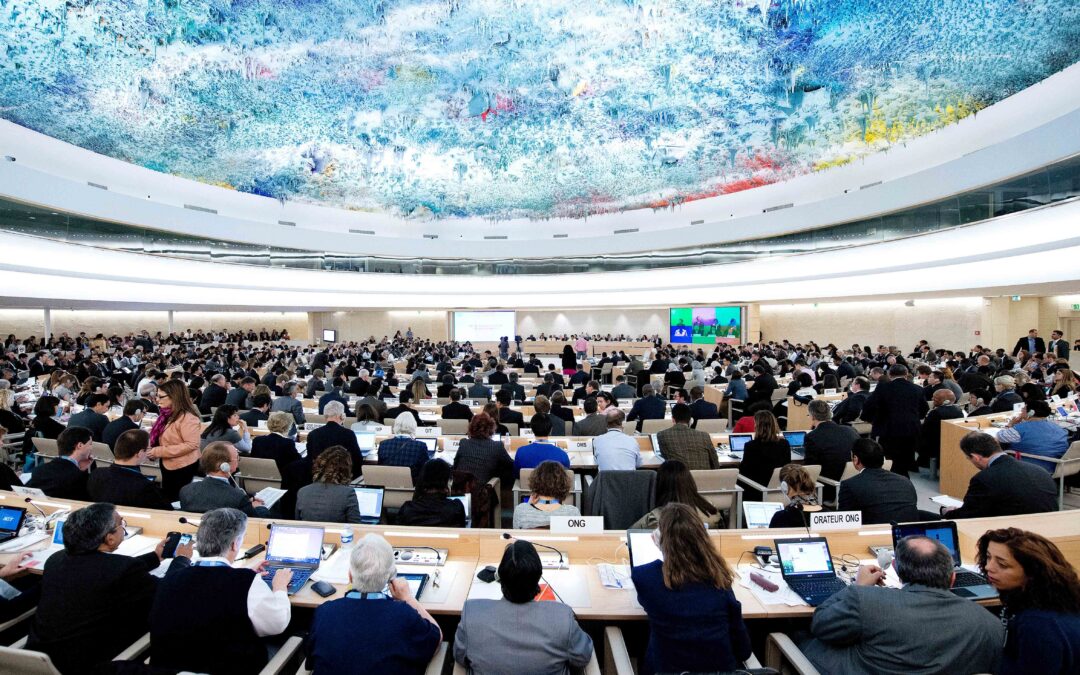
Jun 12, 2017 | Advocacy, Non-legal submissions
Speaking at the UN Human Rights Council, the ICJ today highlighted judicial corruption and threats to judges and lawyers in Turkey and Azerbaijan, as well as regressive steps on violence against women in the United States of America and Russian Federation.
The statement, delivered during the interactive dialogue with the UN Special Rapporteur on Independence of Judges and Lawyers and the UN Special Rapporteur on Violence against Women, was as follows:
“The ICJ warmly welcomes the new Special Rapporteur on Independence of Judges and Lawyers. As he has highlighted, ensuring judges are accountable for corruption and human rights violations, while respecting judicial independence, should be a global priority. Our Practitioners’ Guide on Judicial Accountability, published last year, should be of particular use to the Rapporteur and other actors in this regard.
Several situations serve as stark examples of other issues raised in his report. In Turkey, recent constitutional amendments give the President and Parliament control over the judiciary’s governing body. This has undermined the judiciary’s independence, already threatened by the mass dismissal of judges and the state of emergency. Lawyers and legal scholars, among others, are routinely dismissed or threatened by the authorities.
In Azerbaijan, the Bar Association is not independent and does not protect its members against undue interference with the exercise of their professional duties. Rather, it often serves as a tool of retaliation against independent human rights lawyers, including through disbarment proceedings that contravene international standards.
We would ask the Special Rapporteur for his views on the role his mandate can play in these and similar situations.
The ICJ also welcomes the report of the Special Rapporteur on violence against women.
Despite increasing global acknowledgement of the grave and systemic nature of violence against women, some States continue to introduce regressive legislation undermining protections for women. For example, the Russian Federation’s decriminalization of certain forms of domestic violence, and attempts in some parts of the United States of America to restrict availability of sexual and reproductive healthcare, particularly impact on victims of sexual violence. The Philippines’ President’s public statements disregarding the gravity of sexual violence are another example. The ICJ would ask the Special Rapporteur what can be done to prevent such backsliding?”
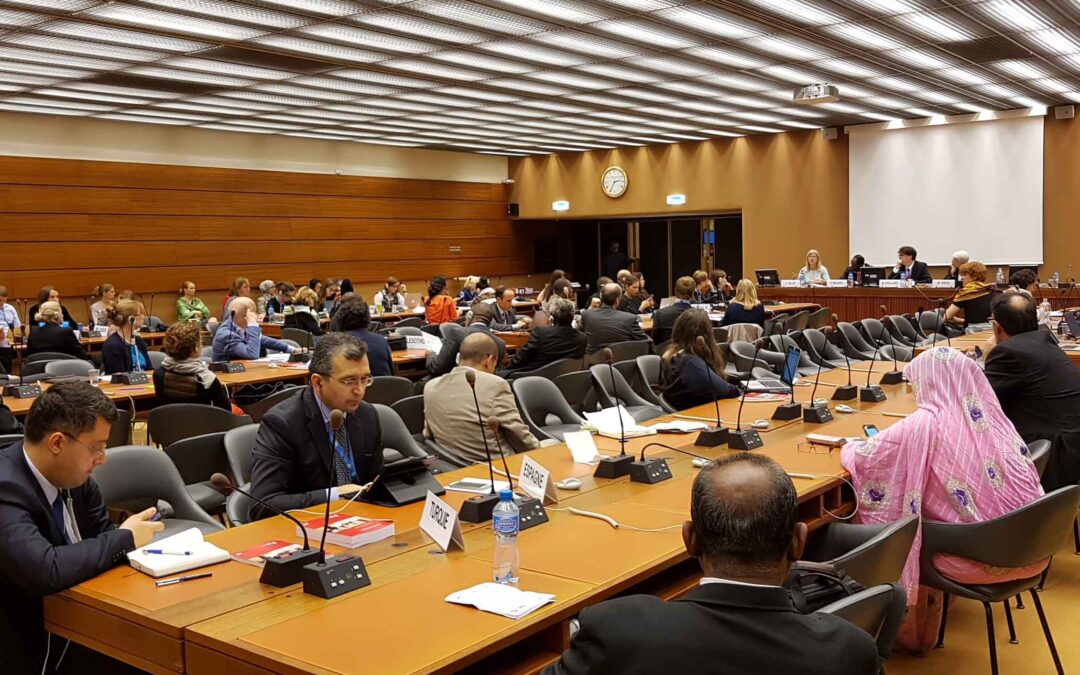
Jun 13, 2016 | Events
Who judges the judges?
Accountability for judicial corruption and judicial complicity
Side Event Tuesday 14 June 2016, 14:00 – 16:00
Room XXIII, Palais des Nations, Geneva.
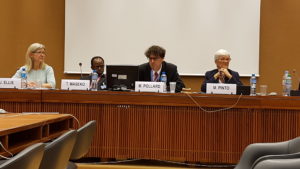
The International Commission of Jurists (ICJ) and the International Bar Association (IBA) organised a side event to the 32nd session of the Human Rights Council, on the topic of accountability for judicial corruption and judicial involvement in human rights violations.
The well-attended event considered the need for judicial accountability, and different options for effective mechanisms and procedures of accountability. Recommendations for ordinary situations were complemented with reflections on circumstances of transitions where the judiciary have been deeply implicated in the violations of the previous regime, as well as particular challenges in developing countries.
At the event the ICJ launched its new Practitioners’ Guide on Judicial Accountability, and the IBA presented the recent report of its Judicial Integrity Initiative on Judicial systems and Corruption. Print copies of both publications were distributed.
A panel discussion also featured the UN Special Rapporteur on the independence of judges and lawyers, as well as Thulani Maseko, a lawyer from Swaziland who was subjected to prolonged arbitrary detention and imprisonment by judges in Swaziland, for speaking publicly about judicial misconduct in the country.
Speakers:
- Mónica Pinto Special Rapporteur on the independence of judges and lawyers
- Thulani Maseko Lawyer, Swaziland
- Jane Ellis, Director, Legal & Policy Research Unit, International Bar Association
- Matt Pollard, Centre for the Independence of Judges & Lawyers, International Commission of Jurists
In addition to the ICJ and IBA, side event co-sponsors included:
- The Permanent Mission of Hungary to the UN
- Commonwealth Magistrates’ and Judges’ Association
- Commonwealth Lawyers Association
- Rechters voor Rechters (Judges for Judges), Netherlands
- International Legal Assistance Consortium
The ICJ Practitioners’ Guide on Judicial Accountability, and the research and consultations on which it is based, was made possible with the financial support of the Republic and Canton of Geneva and the Ministry of Foreign Affairs of Finland.
For more information, please contact Matt Pollard.
ICJ Practitioners’ Guide No. 13 on Judicial Accountability
The ICJ’s Practitioners’ Guide No. 13 on Judicial Accountability aims to help practitioners ensure accountability for serious judicial misconduct, such as corruption or complicity in human rights violations, while preserving the independence of the judiciary.
It focuses on international standards on accountability mechanisms and procedures, illustrated by practical examples. It addresses not only the accountability of individual judges, and the accountability of judiciary as an institution, but also State responsibility under international law, particularly in relation to harm caused to victims of violations by judges.
The Guide was greatly informed by discussions among eminent judges and lawyers from around the world, convened by the ICJ Centre for the Independence of Judges & Lawyers, in Tunisia in October 2015 , and in Geneva in December 2015.
Among the topics covered by the new ICJ Guide are:
- The obligation to ensure an independent, impartial and accountable judiciary.
- The forms of judicial accountability, including:
- Remedy and reparation for victims,
- The responsibility of the State,
- Removal from office, disciplinary sanctions, and other administrative measures,
- Criminal responsibility, and
- The right to the truth.
- The structure and elements of accountability bodies, such as:
- Review of decisions through appeal or judicial review,
- Judicial councils,
- The ordinary courts,
- Parliamentary procedures,
- Ad hoc tribunals,
- Anti-corruption bodies,
- Civil society monitoring and reporting,
- National human rights institutions,
- Professional associations,
- International accountability mechanisms.
- Procedural issues, including:
- Necessary powers for accountability mechanisms,
- Procedural rights of the judge,
- Procedural rights of complainants and victims,
- Publicity and transparency,
- Procedures for lifting judicial immunity,
- Temporary suspension during proceedings, and
- Selective enforcement for improper purposes.
- Mechanisms in exceptional circumstances, such as transitions from undemocratic or authoritarian regimes, including:
- Truth commissions,
- Vetting, and
- Mass removal and re-application.
- Particular challenges in relation to developing countries.
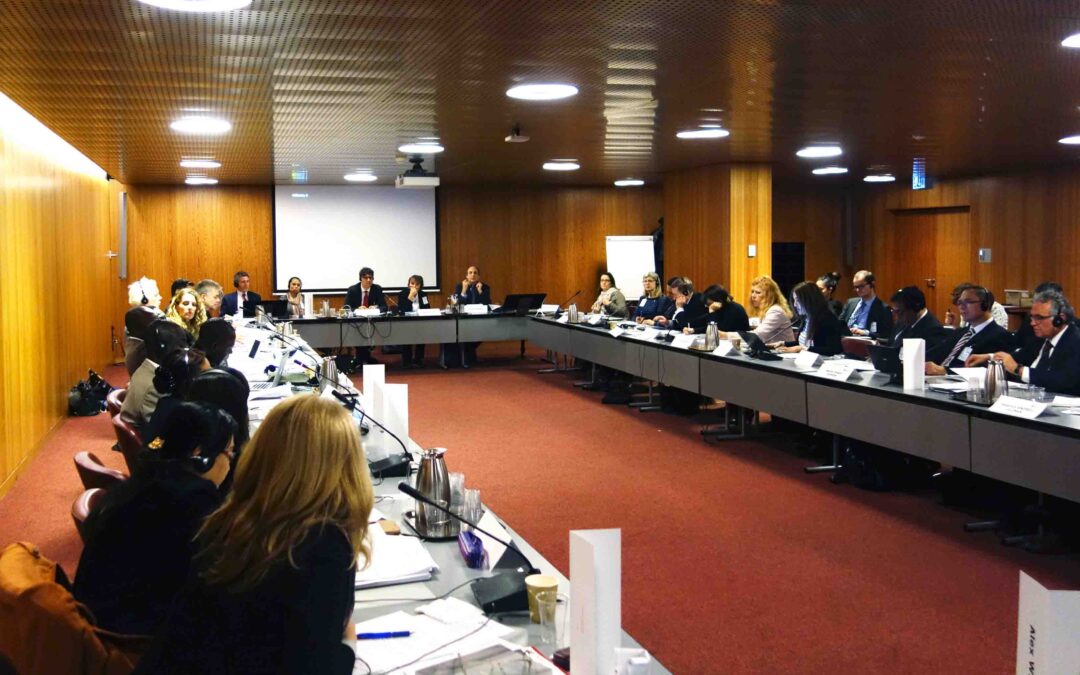
Dec 16, 2015 | Events, News, Video clips
More than 40 senior judges and lawyers from all parts of the world have made an important contribution to efforts to hold judges accountable for involvement in human rights violations and judicial corruption, by participating in the sixth annual ICJ Geneva Forum of Judges & Lawyers.
The Geneva Forum is organized annually by the ICJ’s Centre for Independence of Judges & Lawyers (CIJL) and brings together judges, lawyers and prosecutors from around the world, together with UN officials and representatives from international professional associations of legal professionals, as well as academics and other experts.
This year’s Geneva Forum (14-15 December) formed part of a larger CIJL project to promote judicial accountability, through sharing of knowledge about relevant international standards and international and national good practices, between the judiciary, other legal actors, and governments and civil society around the world.
The focus of the project is on judicial involvement in human rights violations such as unjust executions, prolonged arbitrary detention including imprisonment after deliberately unfair trials, judges providing impunity to perpetrators or enforced disappearance and torture, as well as judicial corruption that leads to human rights violations.
Victims of such violations have the right to remedy and reparation, including in relation to the role of judges, and society as a whole should be able to be confident that those responsible for such judicial misconduct will be held to account.
The two days of intense and detailed discussion and debate, at times practical and at times passionate, identified wide areas of agreement amongst participants, as well as areas of divergence and questions requiring further study and deliberation. Topics covered included:
- the composition and character of accountability bodies (and particularly, the importance of judge-led processes that at the same time may benefit from involvement of representation of the legal profession, legal academia, and general public – while excluding undue influence from the Executive or Legislative branches of government);
- the practicalities of bringing criminal proceedings against judges;
- the role of national, regional and international professional associations;
- possible options in situations of transition to democracy where the judiciary on the whole may have been an instrument of repression of the prior regime, or situations of pervasive corruption, or conflict or post-conflict situations;
- particular considerations in relation to judicial accountability in developing countries;
- the powers and methods for gathering of evidence of judicial misconduct;
- the rights of individual judges and of alleged victims of judicial misconduct;
- the role of publicity and transparency in judicial accountability processes;
- the inclusion of safeguards against the abuse of judicial accountability mechanisms for ulterior motives, including political interference that undermines the independence of the judiciary;
- and practical means for ensuring that mechanisms and procedures, once established, operate effectively and fairly in practice.
The Forum follows a smaller expert consultation meeting convened in Tunisia in October focussing on judicial accountability in developing countries where, it is widely recognized, the negative impacts of corruption on human rights are deepest and most widespread. A report of the Tunis consultation is available here.
The Geneva Forum and Tunisia consultation are an opportunity for direct sharing of experience and expertise between practitioners, strengthening their capacity to carry out effective judicial accountability work in their own regional and national contexts, and to further disseminate this knowledge to others.
It is also an opportunity to discuss possible global strategies for promoting more effective and fair judicial accountability mechanisms and procedures.
The exchanges between leading judges and lawyers at the Geneva Forum and Tunis consultation will also directly feed into an ICJ Practitioners Guide on Judicial Accountability, with global legal, policy and practical guidance, to be published in June 2016. (Update 7 June 2016 – the Guide has now been published and is available here.)
The Practitioners Guide will be printed, published electronically, and distributed as a foundation for subsequent work by the ICJ and others at the national and regional level, from 2016 onwards, including in development-assistance recipient countries. It will join a series of Practitioners Guides published by the ICJ (nine to date, no. 10 and 11 to be published very soon), which have proved to be leading reference guides and training materials in the field of legal protection of human rights and the rule of law.
The developing countries consultation in Tunisia, and participation of practitioners from developing countries in the global Geneva Forum, will help to ensure that the Practitioners Guide is relevant to and has impact in ODA recipient countries.
The ultimate aim of the work of the CIJL, including the 2015 Geneva Forum on judicial accountability and the eventual Practitioners Guide, is to improve access to independent and impartial justice for victims of human rights violations, corruption and similar abuses, including when the judiciary itself has been involved in the wrongdoing.
The 2015 Geneva Forum, and the earlier Tunisia consultation, have been made possible with the support of the Republic and Canton of Geneva, as well as the Ministry of Foreign Affairs of Finland. The ICJ is also grateful for the assistance of the Geneva Welcome Centre (CAGI).
The list of participants to this year’s Geneva Forum is available here: Participants list (public)
The report of the Tunis consultation is available here: Universal-Tunis Consultation-Publications-Seminar and Conference Report-2016-ENG
Information about previous years’ events and publications is available here: Geneva Forum Homepage
A 2000 CIJL Yearbook focussing on Judicial Corruption is available here: 2000 CIJL Yearbook Judicial Corruption
Voices from the Geneva Forum:
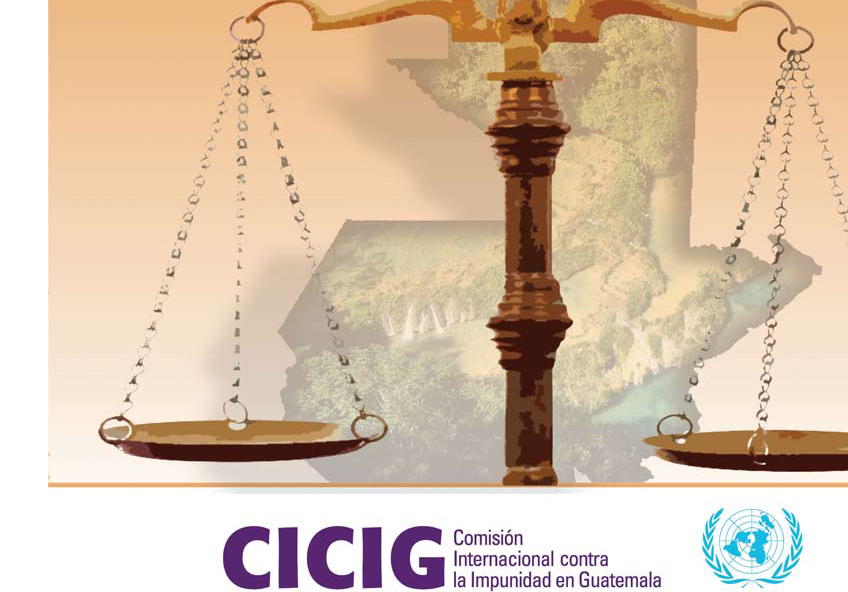
Jul 22, 2015 | News
Ante los procesos penales que ha iniciado la Comisión internacional contra la Impunidad en Guatemala (CICIG) en el país, la CIJ expresa su absoluto apoyo al Comisionado de la CICIG Iván Velásquez por la batalla que está librando por la depuración del Estado de Guatemala y contra la corrupción.
Todos los casos develados por la CICIG están demostrando los niveles de impunidad existentes, debido a la persistencia de diferentes estructurales criminales, que cuentan con participación de altos funcionarios de Gobierno.
La CIJ lamenta que un partido político esté promoviendo acciones en contra de la CICIG y manifestaciones de diversa índole, para desestabilizar al país y evitar que sus miembros y candidatos sean investigados.
La CIJ se permite recordar que los actos de corrupción afectan seriamente la vida de toda la población guatemalteca, el uso adecuado de los recursos públicos en beneficio de las mayorías y corroe los cimientos básicos del Estado de derecho.
Ramón Cadena, Director de la CIJ para Centro América, declaró: “Hacemos un llamado a todos los partidos políticos, para que apoyen la gestión de la CICIG y faciliten toda la información que coadyuve a las investigaciones que la CICIG está llevando a cabo para erradicar la corrupción en el país.”
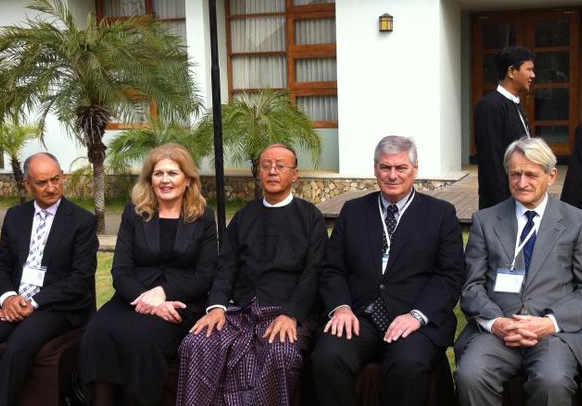
Feb 5, 2015 | News
Myanmar must follow through on promising efforts to improve the independence and accountability of its legal system, and particularly its judiciary, said the ICJ today at the launch of one of its landmark book in Yangon.
The ICJ launched today the Myanmar language version of its Practitioners’ Guide to the Independence and Accountability of Judges, Lawyers and Prosecutors.
“The judiciary in Myanmar has taken important steps towards asserting its independence from the other branches of government, but we heard repeatedly from the judiciary that they still face significant obstacles in this regard,” said Wilder Tayler, ICJ’s Secretary-General.
The book launch wrapped a series of discussions regarding judicial ethics and the rule of law with the Supreme Court of the Union of Myanmar, as well as with the parliamentary Committee on Rule of Law and Tranquility.
The ICJ’s Practitioners’ Guide n°1 is the first of its kind to be published in the Myanmar language providing detailed references to international and comparative standards on the independence and accountability of judges and lawyers.
“The Supreme Court emphasized its belief that an independent judiciary plays a key role in ensuring access to justice and the protection of human rights, but with independence must come accountability,” Tayler added. “The Myanmar judiciary must be accountable not just in deciding cases according to the law and facts, but also as a separate and equal branch of the government, and ultimately, to the people of Myanmar.”
In the course of its discussions at an earlier workshop in Naypyidaw, the ICJ was repeatedly told that the judiciary is trying to address challenges to its institutional independence, as well as the independence of individual judges.
Corruption, which remains a serious problem throughout all social sectors, including the judiciary, interferes with the judiciary’s ability to provide a remedy for human rights violations and bringing perpetrators to justice.
Undue influence by powerful political and economic actors continues to hamper the push for greater trust and credibility for the judiciary among the general public.
“As we heard at the workshop, at all levels of the system, from the Supreme Court to the Townships, a lack of resources, poor working conditions and low remunerations contribute to an environment where the temptations of corruption, or outside pressure, undermine judicial independence and impartiality,” said Tayler.
“We also heard strong support from all levels of the judiciary for establishing a judicial code of conduct that incorporates international standards and best practices in response to the demands of the people of Myanmar for more rule of law. Producing such a code, and implementing it, would go a long way toward increasing the judiciary’s independence and accountability,” he added.
Wilder Tayler was joined by a senior panel of international legal experts on judicial integrity, including three ICJ Commissioners: Justice Azhar Cachalia of the Supreme Court of Appeals of South Africa, Justice Radmila Dicic of the Supreme Court of Serbia, and retired Justice Ketil Lund of the Supreme Court of Norway.










